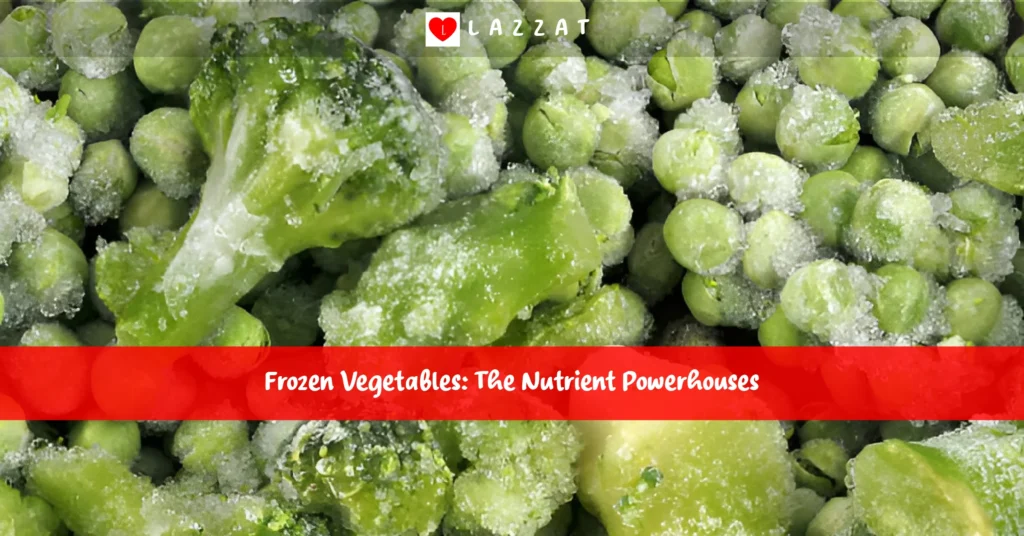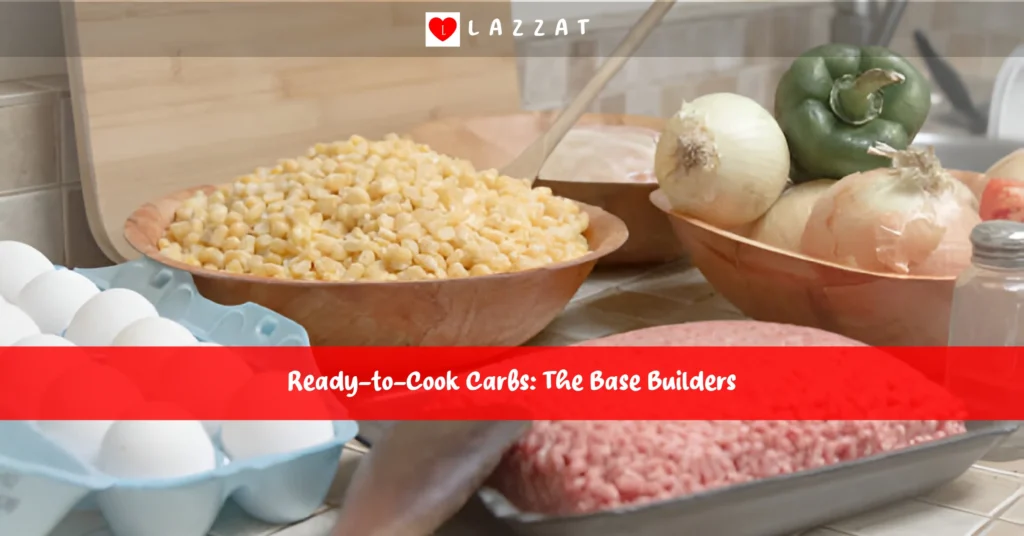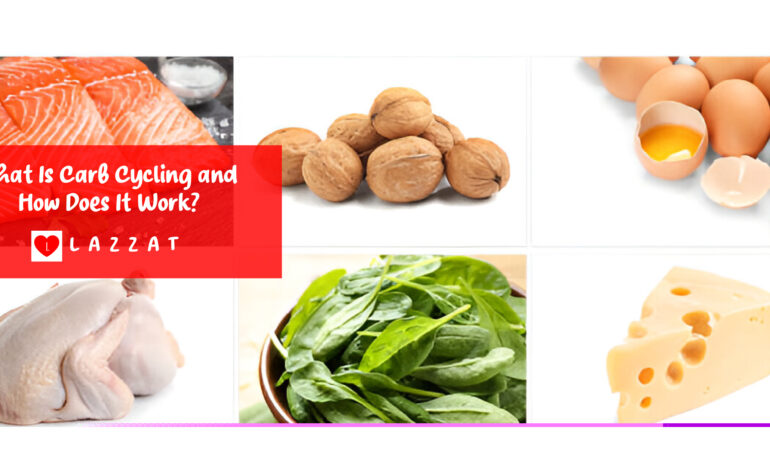Ever opened your freezer and found nothing but ice cubes and mystery meat? A well-stocked freezer is like a culinary safety net—it saves you from last-minute grocery runs, reduces food waste, and puts dinner on the table fast. Whether you’re a busy parent, a meal-prep fan, or just someone who hates soggy spinach, these six freezer essentials will transform how you cook.
Let’s break down what to always have on ice and why.
Table of Contents
1. Frozen Vegetables: The Nutrient Powerhouses
Fresh veggies are great—until they turn to mush in your fridge. Frozen vegetables are picked at peak ripeness and flash-frozen, locking in nutrients. Studies show they can be more nutritious than “fresh” produce that’s been sitting on a truck for days.
Best to Keep Stocked:
- Spinach: Toss into soups, omelets, or smoothies (no chopping!).
- Peas: Sweet, quick-cooking, and perfect for pastas or fried rice.
- Mixed peppers: Saves 10 minutes of chopping for fajitas or stir-fries.
Pro Tip: Buy plain veggies (no sauces) for versatility. A 1-pound bag costs about the same as fresh but lasts months longer.

2. Frozen Fruits: Nature’s Sweet Backup
Craving blueberries in January? Frozen fruit lets you enjoy summer flavors year-round. The freezing process preserves antioxidants, making them a smart choice for health and convenience.
Top Picks:
- Berries: For smoothies, oatmeal, or baking (thawed raspberries = instant sauce).
- Mango chunks: Blends into creamy smoothie bowls or salsas.
- Cherries: Bake into clafoutis or mix with yogurt.
Fun Fact: Frozen fruit is often cheaper than fresh—especially out of season.
3. Protein Staples: Meal-Saving MVPs
No time to defrost a whole chicken? Individually frozen proteins are weeknight heroes.
Must-Haves:
- Chicken breasts (individually wrapped): Throws straight into the Instant Pot.
- Shrimp: Cooks in 5 minutes for pastas or salads.
- Plant-based burgers: For when you need dinner now.
Storage Hack: Portion ground meat into 1-lb bags before freezing—no more hacking at a frozen block!
4. Ready-to-Cook Carbs: The Base Builders
Because cooking rice after work feels like a chore.
Freezer Gold:
- Frozen brown rice/quinoa: Microwave for 3 minutes.
- Whole grain waffles: Toast for quick breakfasts.
- Dumplings: Emergency meal in 10 minutes flat.
Cost Comparison:
| Item | Fresh Price | Frozen Price | Time Saved |
|---|---|---|---|
| Brown rice | $2.50/lb | $1.50 (pre-cooked) | 45 minutes |
| Peeled shrimp | $12/lb | $8/lb (frozen) | 15 minutes |

5. Homemade Meal Starters
Why buy pre-chopped onions? Make your own freezer kits.
Smart Prep Ideas:
- Mirepoix mix (diced onions, carrots, celery): Starts soups/stews fast.
- Herb ice cubes (olive oil + basil/cilantro): Flavor bombs for sauces.
- Tomato paste dots: Freeze in teaspoon portions (no more wasted cans).
Personal Favorite: Frozen ginger slices—grates straight into stir-fries!
6. The Emergency Dessert Stash
Because sometimes you need cookies at midnight.
Sweet Essentials:
- Cookie dough balls: Bake 1 or 12.
- Puff pastry: Turns fruit into instant tarts.
- Dark chocolate chunks: For baking or ahem stress-eating.
Science Bit: Chocolate lasts 18+ months frozen—no bloom if sealed well.
Freezer Management Pro Tips
A messy freezer is a wasted freezer.
- FIFO Rule: First In, First Out (rotate older items forward).
- Temperature Check: Keep at -18°C (0°F) for optimal storage.
- Label Everything: “Mystery stew” = future trash.
Container Guide:
| Best For | Avoid |
|---|---|
| Soups | Glass jars (can crack) |
| Berries | Original flimsy packaging |
Common Freezer Mistakes to Avoid
Don’t learn these the hard way:
Freezer burn: Press air out of bags before sealing.
Overstuffing: Air needs to circulate.
Refreezing thawed meat: Safety hazard!
Surprising No-Freeze List:
- Eggs in shells
- Yogurt
- Lettuce (turns to sludge)

Conclusion:
A strategically stocked freezer isn’t just convenient—it’s a game-changer for eating well without the daily cooking grind. Let’s recap the essentials:
The 6 Must-Haves:
- Frozen veggies (your nutrient safety net)
- Frozen fruits (smoothie magic waiting to happen)
- Individually frozen proteins (dinner emergencies solved)
- Pre-cooked carbs (because nobody has 45 minutes for rice)
- Homemade starters (future-you will thank present-you)
- Emergency sweets (because life happens)
Your Next Steps:
- Do a “freezer audit” tonight—toss anything frostbitten or unrecognizable
- Pick 3 essentials from this list to add on your next grocery run
- Set a monthly reminder to rotate stock
Remember: Your freezer should work for you, not become a black hole of forgotten food. With these staples, you’ll always be minutes away from a good meal—no takeout required.
Also Read: What Foods Should You Not Cook in an Air Fryer?
FAQs
How long do frozen vegetables last?
Frozen vegetables stay fresh for 8-12 months. For best quality, use within 6 months and store in airtight containers. Look for ice crystals as a sign of freezer burn.
Are frozen fruits healthy for smoothies?
Absolutely! Frozen fruits retain most nutrients and make smoothies creamier. They’re often picked at peak ripeness and flash-frozen, sometimes containing more vitamins than fresh produce that’s been shipped long distances.
Can you freeze milk or cheese?
Milk freezes well if you leave room for expansion in the container. Hard cheeses like cheddar freeze fine, but soft cheeses may become crumbly after thawing.
What’s the best way to freeze fresh herbs?
Chop herbs and freeze in olive oil using ice cube trays. Alternatively, blend with water and freeze as herb ice cubes for cooking.
How do you prevent freezer burn?
Use heavy-duty freezer bags with all air pressed out. Double-wrap meats in plastic wrap before bagging. Maintain consistent freezer temperature at 0°F (-18°C).

